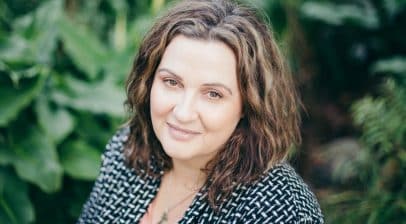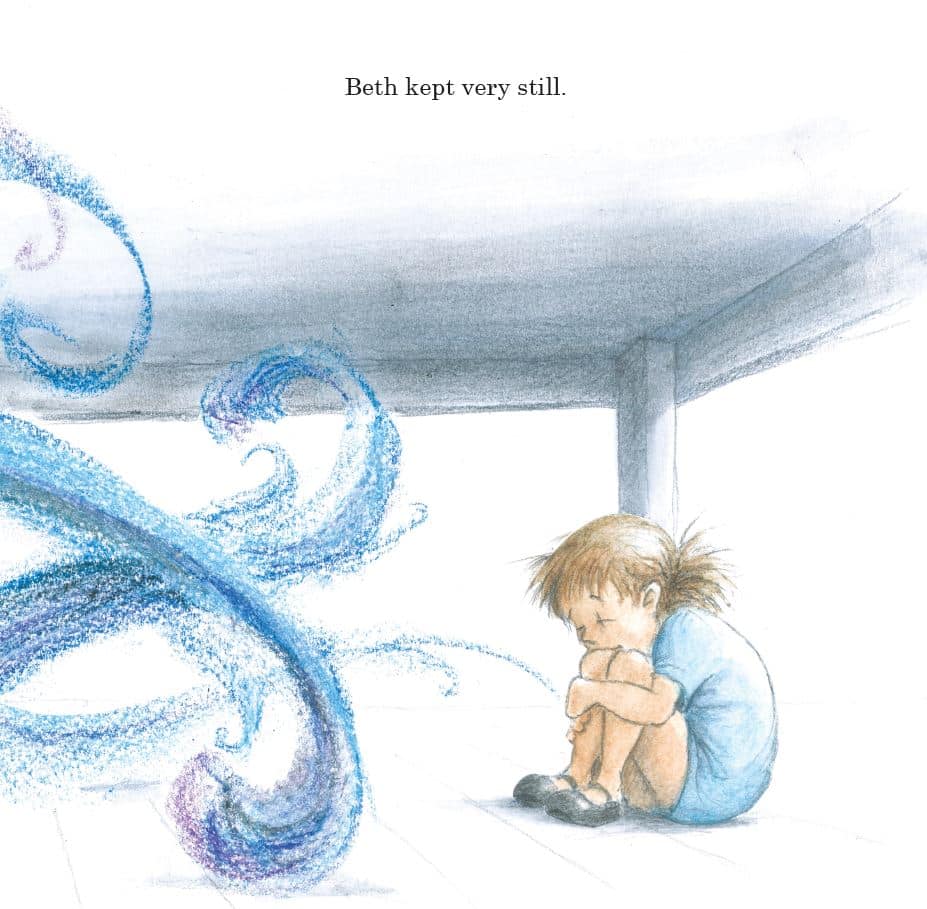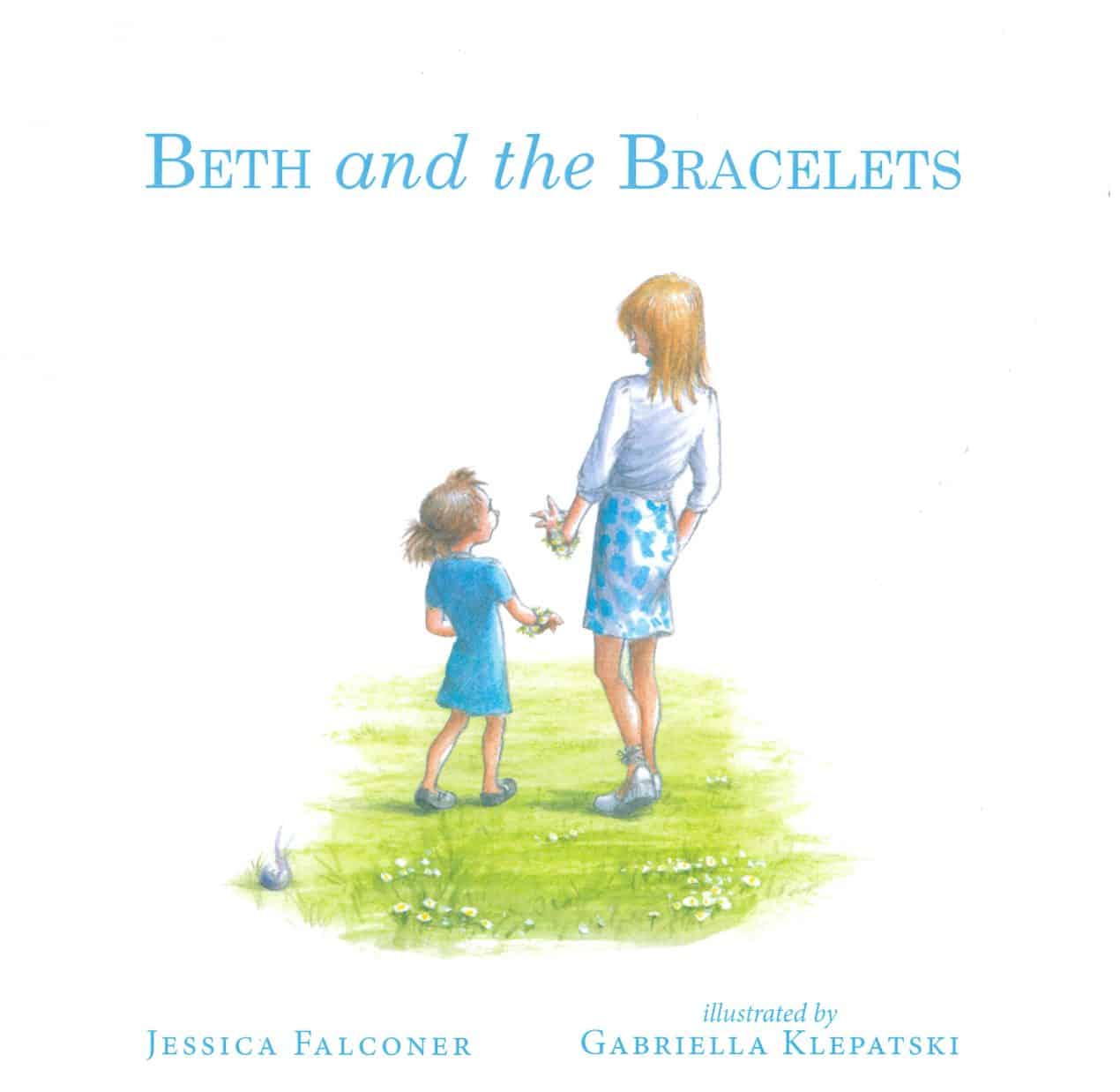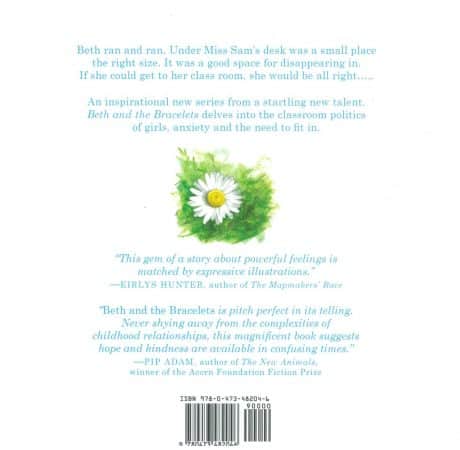Beth and the Bracelets is a picture book by first-time author Jessica Falconer who describes how she came to create a character she would have needed as a child.
WHEN I RECENTLY showed my five-year-old niece the newly-published book Beth and the Bracelets that I had written, she told me, and really meant it, that Beth would be her friend.
At its heart, the book is about exclusion, a meltdown and a kind teacher.
My niece’s comment made me incredibly proud and made me wonder about my own friendships during childhood. How the complex and intricate relationships between girls often went beyond me. How I didn’t know the rules. I didn’t understand why things were different today than yesterday. Why it mattered what colour shoelaces you wore.
At times, I tried really hard to fit in. I tried to understand what those other girls wanted. I mimicked their behaviour. I hated having my hair brushed, so my mother kept it short. I tried to grow it, to be more like the other girls. But it just wound up being a rats’ nest. I tried joining in elastics at lunchtime. But I’m really uncoordinated and couldn’t concentrate enough to jump. I invited girls for playdates but they just wanted to play inside where it was boring.
At lunchtimes, I just wanted to wander around and not have people talk at me. I just wanted to escape from the world.
So I started taking my books to school. I would scurry away at lunchtime and hang out with my “real” friends. They were Sara Crewe from ‘A Little Princess’ and Dicey Tillerman from ‘Dicey’s Song’.
Dicey was a strong, independent tomboy who didn’t care what anyone thought about her. She just wanted to find a home for her three younger siblings. She put in the hard yards, and stuck to her principles and in the end, found her grandmother, who loved her exactly the way she was.
These two young characters were everything to me that the girls at school were not. They were strong, thoughtful and consistent. They knew what it was like to be an outsider, but then didn’t let that affect them. They kept true to themselves, even when it was hard. And they didn’t compromise who they were to make other people happy.
Sara Crewe was a wise but spoiled only child. When her father died, she became the scullery maid at the boarding school where she used to go. She was strong, didn’t let them see her cry, she worked hard and showed her mettle. In the end, her guardian found her and loved her, exactly as she was.
I still read both books every year. I have the same copies. There are missing pages, the paper is brown and worn but they do not deserve to be thrown out for better versions. Sara and Dicey were my true friends, I would not discard them.
I remember having a particularly hard day and getting my duvet and climbing into my wardrobe with Dicey’s Song. I didn’t even read it, I just held the book and rocked. Because Dicey had been through so much, been rejected so often and kept her pride. Kept her sense of who she is. Dicey would know, she would understand.
When my niece said that Beth would be her friend, my heart leapt. What if…… what if I had created a friend for someone? For a little girl to see herself? What if a child took ‘Beth and the Bracelets’ and held it close while they hid and rocked? I feel like that would be the best full circle possible. Creating a character that I would have needed as a child. The young girl inside of me is awfully proud to have created a friend for others.
- Beth and the Bracelets, available at all good books stores everywhere.
- Jessica Falconer is a lawyer, mother, director of a tech firm, minister, author, and autistic.
- We have two autographed copies of Beth and the Bracelets to give away.
- Email Altogether Autism by Tuesday 17 December, 2019 and tell us why you would like your own copy of Beth and the Bracelets. Tell us about any books you read which saw you through childhood.
- This article appeared in Altogether Autism Journal 3, 2019






